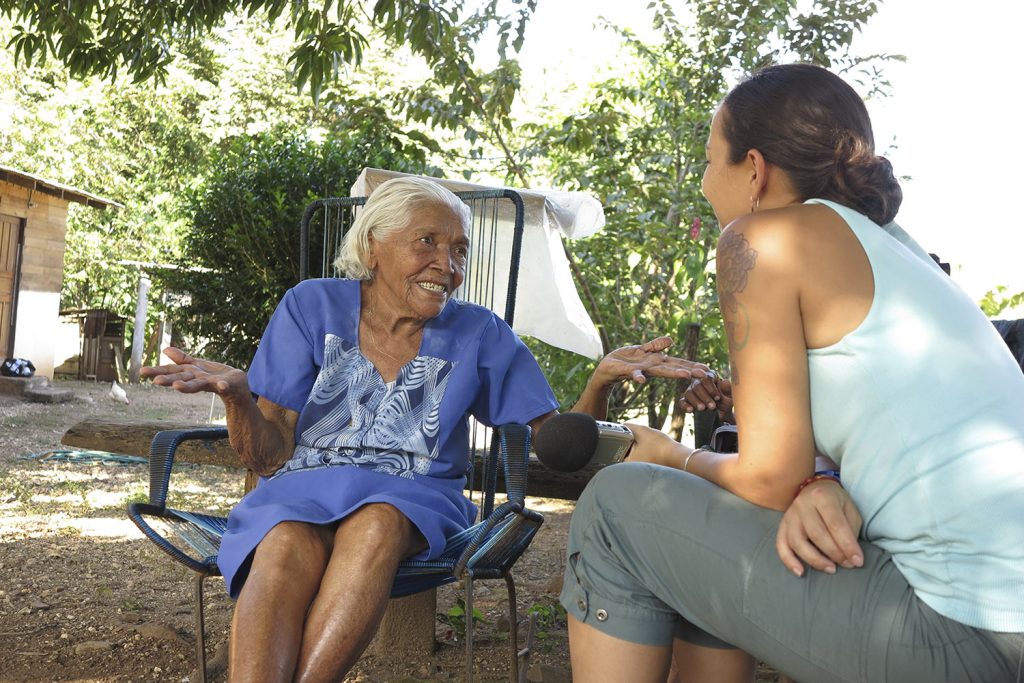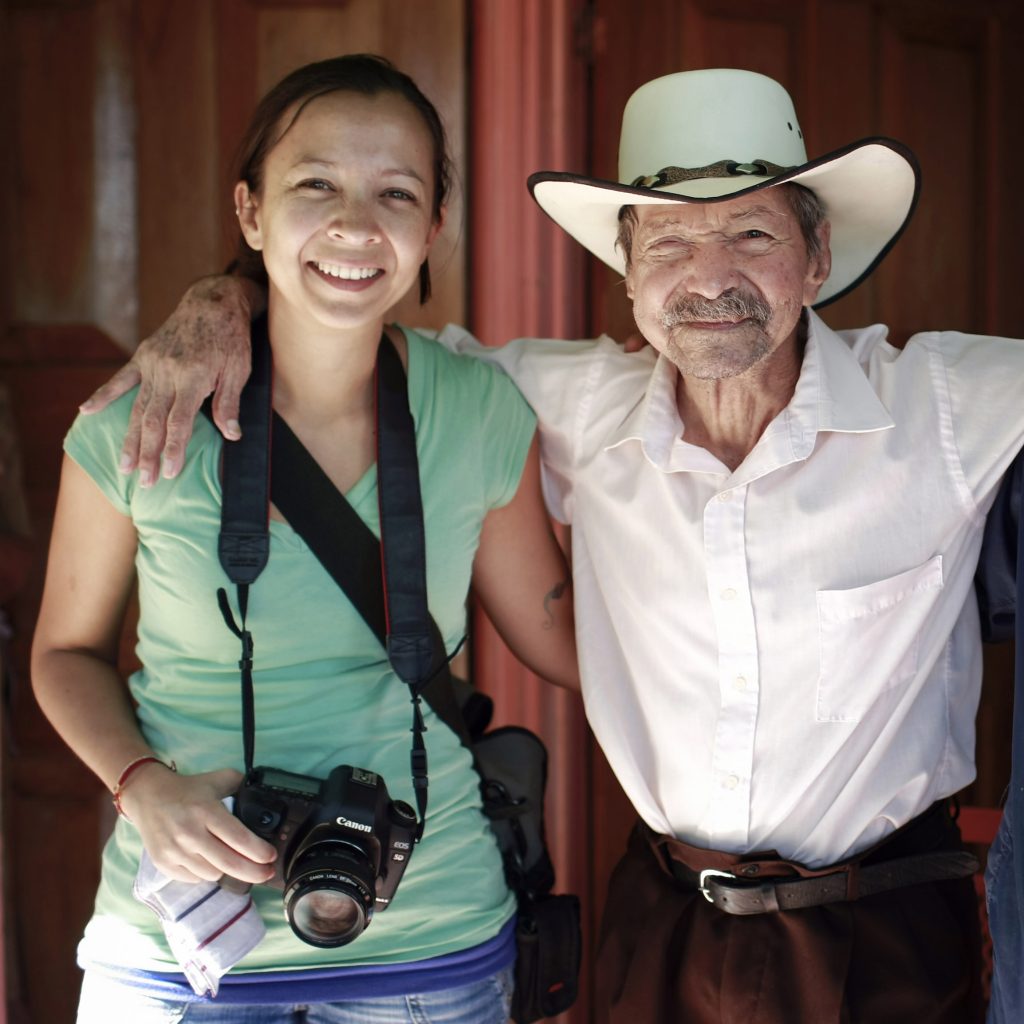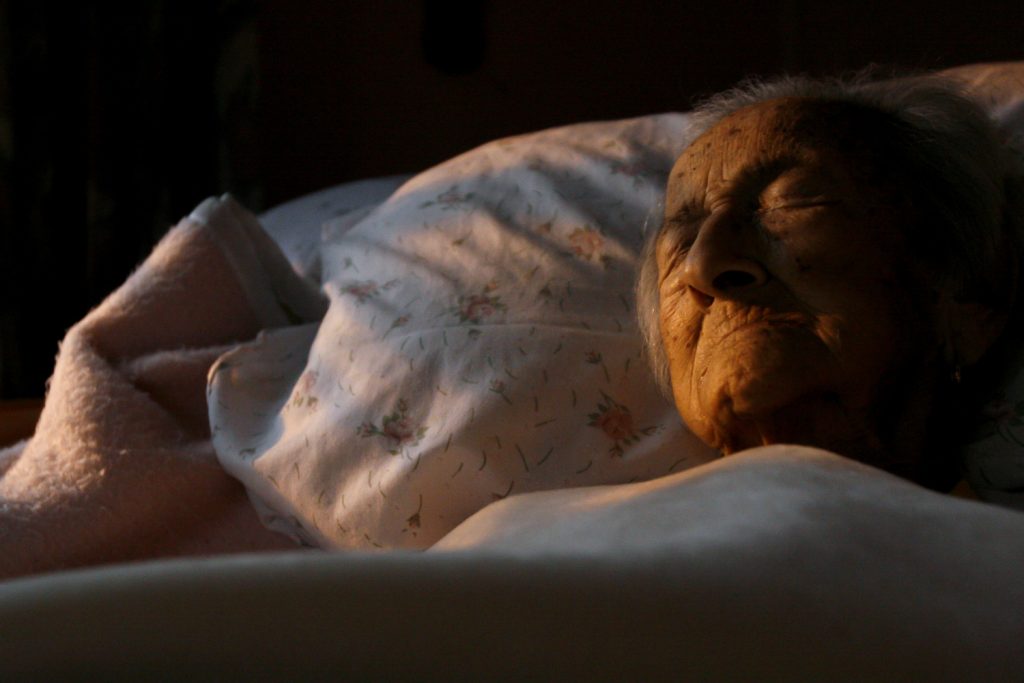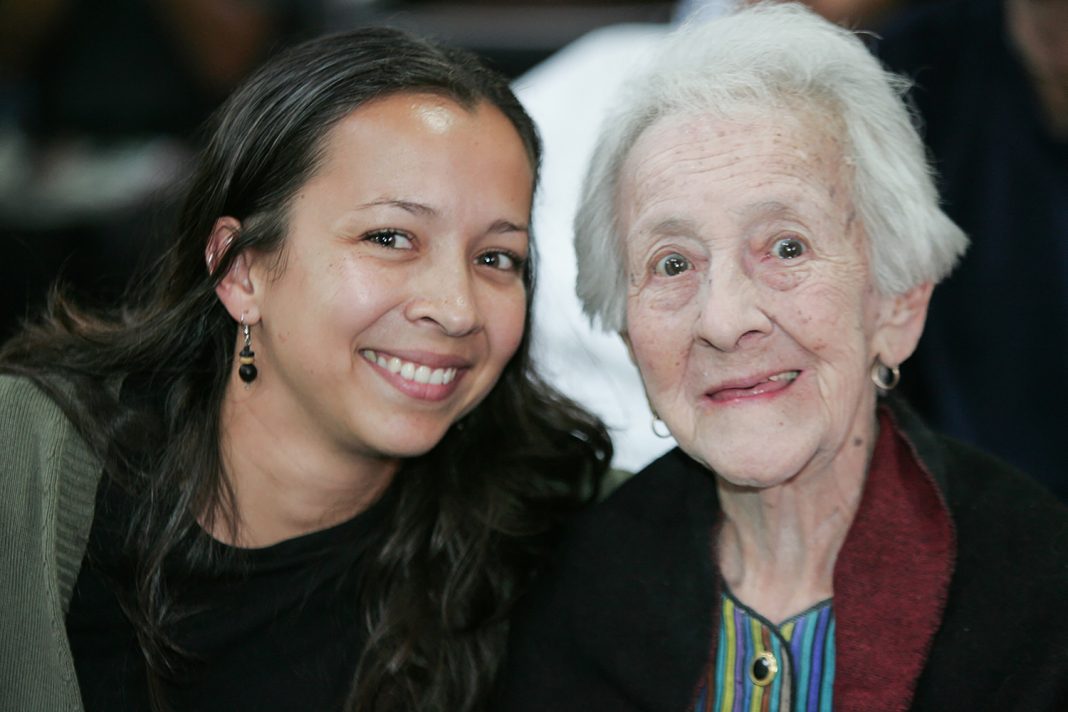Statistics show that by 2045, Costa Rica will have more Costa Ricans over 65 than under 15. That year, I will turn 65. What will I see around me when I conquer that peak of my life?
It is a question that I have asked myself ever since my great-grandmother, Carmen Prado Escamilla, died in 2007 at the age of 100 years and 11 months. What began as a grieving process for the loss of a wonderful woman became a fixation on learning about the longevity of Costa Rica—and above all, to generate in the people around me a love of growing old.
The aging process is something that occurs throughout life and that concerns all people of all ages. We do it during each day, minute, and second that we manage to live. The more we can keep that in mind—the more we can accept our aging process and the power we have over how we age—the healthier we will be.
This idea of paying attention to aging throughout life is not mine. The World Health Organization (WHO) talks about it. The Ministry of Health of Costa Rica talks about it. Doctors, nurses, yogis, sports coaches, and educators talk about it. But for some reason, there is still a collective refusal to admit it, as if accepting that I get older every day makes me old.
Those of us who use the idea of “viejera” (old age) to tease other Costa Ricans know it well: if being old means being dependent, lethargic, awkward, difficult, and all the negative attributions that complete that list, then you can be old at any age. (We could have a whole conversation about that, but that is not the mission of our February edition.)

What does it mean to age?
In 2045, when I turn 65, I’m officially supposed to be a senior who, based on today’s life expectancy data, could expect to live another 18 years or so. That number may be higher by then, but it could also be significantly lower. More importantly, it may be 18 years of full and happy life, just as it may be 18 years of illness, dependency, and even pain.
Why? Because a high life expectancy is no guarantee of a healthy aging process that brings us quality of life. A long life expectancy does not take into account how much effort I put into each of the years, days, and seconds of my life so that my aging is less aggressive, more controlled, slower.
Let’s pause here. Let’s think about this question: Is it possible to age less? It seems contradictory, right? Growing old is simply accumulating years.
Well, no. Growing old is not just accumulating years. Let’s hear from someone official. This is how the WHO explains aging :
“At the biological level, aging results from the impact of the accumulation of a wide variety of molecular and cellular damage over time. This leads to a gradual decrease in physical and mental capacity, a growing risk of disease and ultimately death. These changes are neither linear nor consistent, and they are only loosely associated with a person’s age in years. The diversity seen in older age is not random“.
So, aging does not happen only through adding years. Aging well or badly is largely in our hands. That’s what healthy aging is all about.
The scholar James Fries , with his morbidity compression theory, dsays that healthy aging is “reducing the number of years that people suffer from chronic illness, to enable older people to live more successful and productive lives that will benefit them and to society.” In other words, when people age healthily, their life—whether long, or not so long—will be high quality and full, with a short terminal period.
In Costa Rica, premature mortality from chronic noncommunicable diseases continues to rise. In other words, more and more people suffer from diseases such as diabetes or hypertension at an early age, changing the demographics of conditions that are supposed to “for old people.” If this does not change in the near future, the consequences will have an impact not only on aged individuals—for the record, not necessarily old—but also on society as a whole, affecting our health system, pension systems, and the quality of care services in general.
Hard to believe? Already, in 2016 the management of the National Hospital of Geriatrics and Gerontology announced that “between 2020 and 2050, emergency care for older adults will go from 740,000 cases to almost two million a year.”

In 2007, we had already watched my grandmother Carmen deteriorate dramatically for a few months. She aged healthily: I would say that her toughest years in terms of health and dependence were the last three. That same year, just over 200 kilometers away, a group of scientists from different fields—demographics, medicine, sociology—was conducting a study in Nicoya that would one day make headlines around the world. They were studying nonagenarians and centenarians in what, just a few months later, they declared a Blue Zone: that is, a place where there are up to 10 times more people over 90 than the world average. In Blue Zones, people live longer and better.
These Blue Zones—today there are five—have been the subject of endless studies to try to decipher the magic recipe for healthy aging. The main conclusion of the studies is that 70-80% of healthy aging and longevity depends on a person’s environment, and only 30-20% on genetics. This effect of the environment can be attributed, for example, to improvements in public health, but above all to people’s empowerment of their own health and healthy lifestyles.
El Colectivo 506’s invitation to talk about healthy aging
The path I’ve traveled since my grandmother Carmen died has led me to hear wonderful things about aging and becoming an older person.
Dr. Thomas Perls, director of the New England Centenarian Study and a professor of medicine and geriatrics, told me in 2012 that it’s an opportunity. “People don’t see the opportunities involving living 40 years after 60,” he said in a phone interview.
“Instead of the aging myth that ‘the older you get, the sicker you get,’ it is much more the case of ‘the older you get, the healthier you’ve been’,” the Cenenarian Study website proclaims.
The more than 20 Costa Rican centenarians I have photographed in the seven provinces of our country have also fed my spirit and knowledge with their advice on how to live well and age well.
However, through that process, I also discovered that the reality of Costa Rica is contradictory. Despite the fact that we have a Blue Zone and a life expectancy comparable to that of developed countries such as Japan, France and the United States, the health of Costa Ricans is increasingly threatenedby chronic non-communicable diseases.
That is why El Colectivo 506 will become a window this month through which we can discuss and discover how all the lessons learned from studies on longevity in Costa Rica are being put into practice.
We know that the first step for a change is to create awareness and break stereotypes. That’s why we hope you’ll join the conversation this month, and better yet, bring it into your homes, workplaces, and the digital world.
What does it really mean to get old? How much and what kind of control do young people have over their aging? What do you think?








Mónica, I appreciate getting back to this article, having just watched a recent Blue Zone documentary on Netflix. It made me think about the time you spoke at our photo club meeting about your 101 Centenarian project, then traveling with you in Costa Rica for a couple of weeks…which I remember with fondness.
Within the documentary where they analysed the factors of long life in the Blue Zone areas, there were many varying factors in each zone. There seemed to be one common factor though, which is community. Each of the areas respected and honored the elders and there was continuing involvement within the community. It makes one think about how important it is to volunteer to give back to the community; staying active which removes loneliness. Cheers, Harvey
Hey Harvey! So sorry I have not replied to this comment! Thank you so much for following our work here at EC506 and for remembering my previous work. Yes, community is key for a happy, healthy and well, as long as possible life: in the end is about family (blood related or chosen) and a common purpose. I hope your photography is thriving! All the best!